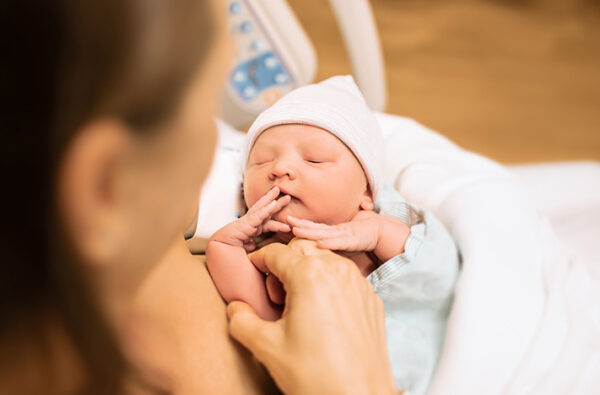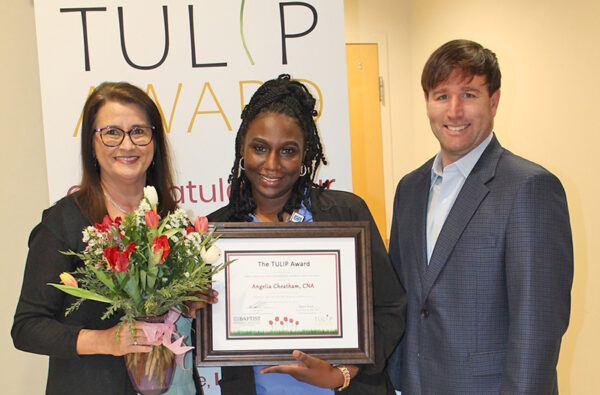The holidays aren’t always completely merry for some of us. Now can be a time when grief is magnified, and loss is felt more intensely. We discussed dealing with grief during the holidays with Angela Hamblen-Kelly, executive director of the Kemmons Wilson Family Center for Good Grief. She is a licensed clinical social worker specifically trained in death and dying.
What can you do if you’re feeling more intense grief around the holidays?
Acknowledge the way you’re feeling. Grief is difficult on a regular Thursday, but if it’s a special day, grief can be more intense. Expect to feel grief despite all the “Happy Holidays” messages. Our culture is grief avoidant. Don’t feel like you must be holly jolly. Allow space to grieve, and you’ll feel more balanced. Allow yourself to feel what you’re feeling in the moment. If you feel joy, that’s OK, too. If you’re not feeling joy or hope, maybe you can borrow some from a trusted friend or counselor and find joy when you can in small things.
The holidays are grounded in tradition, which is one reason grieving can be more intense. What is most important is to have a plan. Every moment doesn’t have to be booked, but going into the holidays, know your plan. And have a back-up plan. Part of your plan can be staying in bed for a bit, but then you must get up. Decide for “this year.” What you do doesn’t have to be cemented for years to come. Accept that this year is different.
Decide how to memorialize your lost loved one. It can be as simple as lighting a candle or making an ornament that reminds you of the person. Tell stories about the person. You may learn things you didn’t know. Kids may still want to hang the stocking of the person who’s gone and write notes or draw pictures to put in the stocking.
Families can sometimes give the message that “We’re not talking about it,” but it’s good to normalize talking about people who aren’t there. Some people must learn how to mourn in a family unopen to mourning. We tend to avoid talking about people who’ve died because of the intensity of emotion it can bring, but not saying someone’s name during a family gathering can cause pain for others.
How long does it take to feel more normal after suffering a loss?
It’s so individual. Usually, you’re in survival mode the first year after a loss. By year two, you begin to accept the reality more and figure out how to live in a new way. By the third year, you may begin to feel a more normal stride during the holidays. Needs are different for everyone.
It’s important when grieving to take care of yourself physically, emotionally and spiritually. Are you staying hydrated? What are you eating? Are you resting enough? Emotionally, allow yourself to dose your grief. Give yourself permission to sit grief down and come back to it later. Spiritually, you can take care of yourself with prayer, quiet meditation, journaling and having quiet time with your thoughts.
What are the warning signs someone is experiencing unhealthy or complicated grief?
We become concerned if a grieving person starts experiencing more or less than their normal, such as eating or sleeping more or less than usual. Other warning signs are having thoughts about not living anymore, experiencing suicidal ideation, feeling an apathy toward life and isolating too much. It’s important to listen to people who are grieving. Don’t talk at them but listen and get help for them if needed.
How has the COVID-19 pandemic made grief different?
It’s different, absolutely. There were so many changes because of the isolation factor during the first year of the pandemic. Funeral services were delayed or not had and that impacted grief.
When we grieve, we vacillate between wanting to be alone and finding support. The isolation during the beginning of the pandemic made finding support more difficult. And there is also the stress around talking about a loved one dying of COVID-19. So many people have opinions about COVID, and it can cause stress for the grieving person to hear someone say it’s not real.
Do we also grieve for someone we didn’t know well, like a patient who died?
Yes, because you form a connection with patients. You can’t be with someone at end of life and not take that on. As health care workers, we do not want anyone to die alone. Health care workers have been fill-ins for family members who couldn’t be there because of the pandemic. Every life is still precious, even if the person isn’t family.
We’ve provided support for health care workers because of grief overload, including virtual, in-person and group therapy.
Are the holidays sometimes more challenging for health care workers?
Yes, but more so because of the pandemic. You see people not feeling well, being vulnerable and feeling loneliness. Because the holidays are grounded in family tradition, it’s difficult to see people sick and away from their families.
Is there anything you’d like to add?
We have a Facebook page with tips for dealing with grief over the holidays. It’s located at Baptist Centers for Good Grief – Kemmons Wilson Family Center and Milla’s House @KemmonsWilsonFamilyCenterForGoodGrief.
Remember to hold onto hope even when it feels nonexistent. Hold onto the hope that the days ahead will have more of a sense of balance. If you’re grieving, I want you to move into each new day and remember. My hope is that grief becomes reconciled into life so you can live and mourn. That’s hope.






